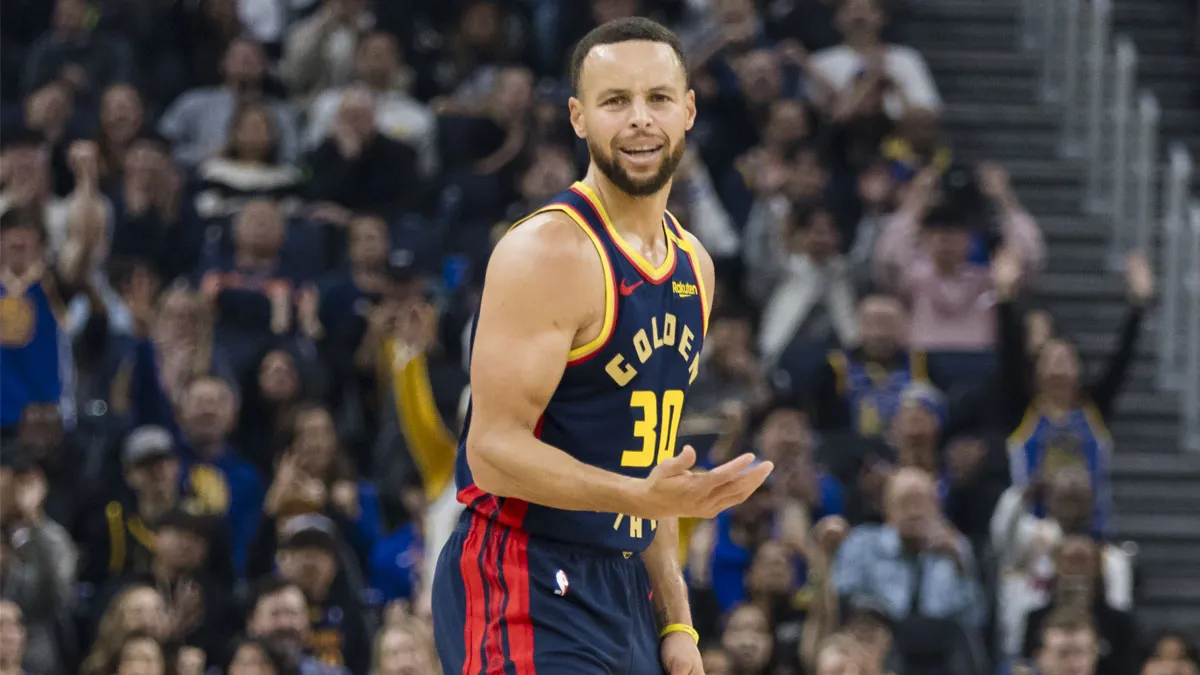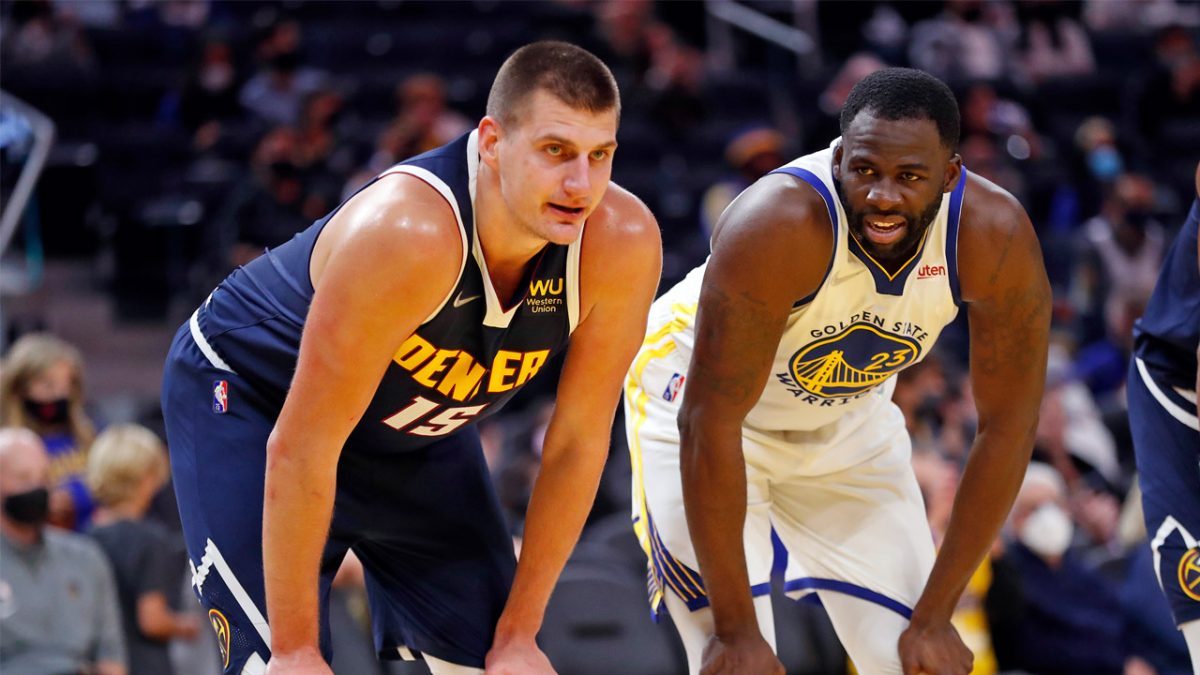SAN FRANCISCO – The opportunity placed before Mike Dunleavy Jr. has but two possible paths. There is an avenue to failure. And there is the road to redemption.
Introduced Monday as the next general manager of the Warriors, Dunleavy joined the man who promoted him, CEO Joe Lacob, for a half hour during which he came off relatively well. Dunleavy provided reasonable answers and ducked only the questions that strayed from his authority.
Dunleavy, however, should know his ascension to GM comes amid considerable curiosity and a modicum of skepticism. Some of it is related to the success of his predecessor, Bob Myers, and some is related to history.
Stay in the game with the latest updates on your beloved Bay Area and California sports teams! Sign up here for our All Access Daily newsletter.
The last time Dunleavy was a central figure with the Warriors, in 2007, it did not go well. As the No. 3 overall pick in the 2002 NBA draft, he arrived burdened with high expectations. His failure to meet them drew the wrath of an impatient fan base and his response was to clap back at the criticism.
There were no cheers for Dunleavy until Jan. 16, 2007, when then-GM Chris Mullin traded him to the Pacers. Dunleavy’s response upon arriving in Indy was to say he was happy to be where “fans appreciate good basketball.”
A regrettable insult, to be sure, and well remembered in the Bay Area when Dunleavy returned to Oracle Arena the next season as a member of the Pacers. The boos were relentless and malicious – as could be expected of Warriors fans who had been dissed by a guy who did nothing to curb the ongoing misery of the franchise.
Dunleavy retired in 2017. One year later, after the Warriors had won three of the previous four NBA Finals, he was invited back, courtesy of Myers and Lacob. Dunleavy accepted a job as a scout and, one year later, was promoted to assistant GM. Two years ago, he was promoted to vice president of basketball operations.
Golden State Warriors
Find the latest Golden State Warriors news, highlights, analysis and more with NBC Sports Bay Area and California.
And now one of the best-detested players in franchise history is reporting directly to the CEO.
“He's the top basketball decision-maker in the organization,” Lacob said.
“You know what's funny, things kind of come full circle,” Dunleavy said. “Although that circle that I was in when I played, it was almost like a different organization. Different city, different team, far less success. To say it's come full circle probably wouldn't be accurate.”
“Ever since I've gotten back, I've felt very comfortable. This is a tremendous organization. Go in there and see the banners that are up. Much different than when I was here as a player.”
When Dunleavy came to the Bay Area in ’02, the Warriors were coming off a 17-65 season. They had a chance at the No. 1 overall pick but landed at No. 3. The Rockets won the lottery and selected Yao Ming. Garry St. Jean, then Golden State’s GM, chose Dunleavy.
The Warriors were 21-61 in Dunleavy’s rookie season, 164-246 during his five full seasons with the team. The team’s dreadful state wasn’t his fault, but he did nothing to suggest he was capable of being a catalyst for a turnaround.
Indeed, it was shortly after Dunleavy was traded that “We Believe” fever began sweeping through the Bay Area. Three months after the trade, the Warriors made the playoffs for the first time in 13 years – and won their first playoff series since 1991.
These Warriors are a much different breed and a vastly more respected brand. Stephen Curry, with plenty of support from Lacob and Myers and head coach Steve Kerr, has led them to unprecedented heights.
While Dunleavy was away, Golden State went from wandering aimlessly in the NBA outback to being perhaps the best global representative of the league.
“I've learned in this business you don't really cross anything off the books,” Dunleavy said. “So . . . coming back here has been great. Love our fan base. The passion is amazing. Kind of felt that the last five years. I think we all just kind of want to keep this thing going.”
The Warriors won four championships during Myers’ 11 seasons as GM. Coming to the Warriors after nearly a decade as an agent and spending one season as assistant GM, he twice was named NBA Executive of the Year. Moreover, he excelled at building rosters and was even better at building and sustaining relationships.
Myers went from an unknown commodity to a top-of-the-line executive.
Dunleavy’s task is to try to duplicate the success generated under Myers, who had the benefit of Curry’s prime years. Anything close to that, and any lingering skepticism about Dunleavy’s ability as a GM will fade.
RELATED: Draymond will become free agent after declining 2023-24 player option
Dunleavy, for his part, extended an olive branch to what now is known as “Dub Nation.”
“Thank you for your passion and just investment in this team with what we've been able to witness the last few years,” he said. “Just incredible. Love coming to the games, seeing our fans and the way they bring it each and every night. We got the best crowd in the league. An amazing following, not only through the state, the country, but the whole world. Thank you for your support.
“From that, I think despite what people have said, the future is bright. The future's bright because we have good, new young players now. I think our processes are good. Our decision-making is sound. We're capable of doing the things we need to do to have long-term sustainability. I think we all should be excited.”
Excited is a bit strong, at least for now. There is, for several reasons, a measure of unease among players and coaches and, yes, fans – all of whom seem to be taking wait-and-see stances.
The road awaits. If Dunleavy can make the journey from despised player to admired executive, he’ll have redeemed himself before a more discriminating and widely engaged fan base. Would be quite the trick.


